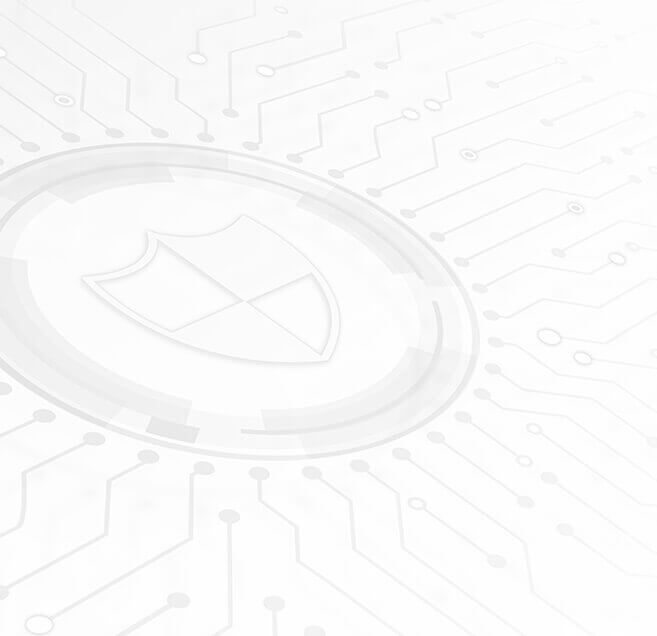
Scroll
Insurance
The insurance industry is responsible for protecting individuals and businesses against potential loss; insuring parties protect assured parties against certain events in exchange for the payment of a premium. To purchase insurance, individuals are required to provide personal data; this could include their contact details, financial records, and health information, as well as details on their properties, vehicles, and pets. Accordingly, the insurance industry houses a huge amount of sensitive data. Importantly, the industry has migrated towards digital channels to enhance the efficiency of its operations. The result is that the sector retains a huge volume of highly confidential data on its online servers, and therefore presents itself as an attractive target for cybercriminals.


Challenges for the Insurance Industry
The two main cybersecurity challenges facing you as an insurance business are protecting your data estates, and keeping your services operational.

Book your FREE demo
Ready to take action? Fill out our form to start the process of protecting your business.


Data Protection
Insurance companies hold a huge amount of personally identifiable information. This includes data pertaining to your customers’ names, contact details, addresses, health records, financial records, taxpayer identification numbers, and chattels. This can also include scans of individuals’ passports and drivers licences. It is vital for you to ensure that this data remains secure and inaccessible to cyber criminals, because you are under a duty to your customers to protect their private information; there are various privacy regulations and data protection laws that you must comply with when storing customer data. In particular, the Data Protection Act 2018 dictates that you must abide by the General Data Protection Regulations (GDPR). The highly sensitive nature of these records means that the consequences of a data breach would be significant for both your business and your customers.


Remaining Operational
Cyber attacks interrupt regular business operations by slowing down or locking your systems. As an insurance company, it is important for you to remain operational at all times, because your primary payout services are only required in urgent situations wherein your customer has faced a significant loss. If a cyber attack impedes your company’s operations, it could take months for your services to be fully reinstated. Accordingly, business interruption could affect your ability to react promptly to fulfil your contractual duties, and result in a loss of customer trust.

Book your FREE demo
Ready to take action? Fill out our form to start the process of protecting your business.
Common Attack Vectors
Phishing attacks are prevalent within the insurance industry. These attacks most commonly manifest through malicious emails which are designed to deceive your employees into conducting certain acts. This could involve transferring data and capital to parties they shouldn’t, divulging their login credentials, or downloading malware onto their devices. These acts allow cybercriminals to compromise the wider organisation’s sensitive data and assets.
In December 2022, an employee at Hilb Group insurance company fell for a phishing scam. This resulted in the compromise of over 80,000 clients’ sensitive data, including their complete financial details, names, and social security number.![]()
Ransomware attacks are a primary attack vector within the insurance industry. The pathway to infection typically involves deceptive phishing emails or compromised websites. Following the successful download of malicious software onto a company device, hackers will encrypt your company’s data, lock you out of your operating systems, and hold your files hostage until you pay a ransom. In most cases, this will result in your operations being reduced or entirely inhibited for weeks.
The demand for ransom is often heightened by a threat to publish your data on the dark web for failure to comply. The threat of data publication is significant for insurance companies, because of the highly sensitive nature of the data you store. Due to this, most businesses elect to pay the ransom, which creates an environment that encourages ransomware attacks.
In May 2021, One Call insurance firm was hit by a ransomware attack from DarkSide. The hackers compromised sensitive customer data including passwords and bank details, and the business’ systems were inhibited for nearly two weeks.![]()
Distributed Denial of Service (DDoS) attacks are common within the insurance industry. These attacks cause your systems to crash by overwhelming them with an excess of traffic. In this way, they disrupt business operations, and result in a loss of customer confidence. DDoS attackers’ motives are primarily to disrupt your organisation’s network and impede productivity.
In May 2021, AXA insurance company was hit by ransomware and DDoS attacks. The DDoS attack was believed to be a secondary attack which aimed to incentivise AXA to pay their initial ransom fee. This attack inhibited AXA’s website operation in Thailand, Malaysia, Hong Kong, and the Philippines. ![]()


Particular Vulnerabilities
New TechnologiesAre you embracing new softwares to help you streamline your operations and reduce costs? Perhaps you have started using artificial intelligence, cloud applications, and the Internet of Things to enhance business activity?
In order to enhance operations, insurance companies have embraced new softwares which offer the best real time solutions, and personalised customer experiences. Whilst these technologies enhance your business operations, they also create vulnerabilities for cybercriminals to exploit. In particular, cloud computing presents a distinct vulnerability for insurance companies. Cloud computing involves storing your data and running applications in the cloud, which enables you to streamline your operations. However, if cloud security standards are not properly adhered to, it creates vulnerabilities for cybercriminals to exploit; your surface area for attack is increased, and you become exposed to cloud exploits including hijacking and denial of service attacks.
Remote WorkingDo you allow your employees to split their time between home and the office? Perhaps you even facilitate working holidays?
Most insurance businesses offer blended working opportunities, wherein their employees are able to split their working hours between the office and their homes. Whilst this offers greater flexibility for employees, it increases your business’ vulnerability to cyber attacks. This is because remote working increases the number of locations that devices need to be monitored from, and also increases the likelihood of personal devices being used. Traditional security methods that operate on perimeters and known devices do not offer sufficient protection under these circumstances. Therefore, you are left with an extensive number of unprotected endpoints that are difficult to monitor and secure. In this way, remote working creates vulnerabilities for cybercriminals to exploit.
Third PartiesDoes your organisation rely on any third parties to perform various functions for you?
Insurance companies often rely on third party vendors to perform various functions for them. Whilst this enhances efficiency, it creates a larger surface area for cybercriminals to target, and leaves a greater number of entry points for them to exploit. If any of your third party contractors were to be targeted in a cyber attack, your business would also be impacted. The breach could result in the loss of your data, operational delays, and reputational and economic damage. As such, third party vendors act as a vulnerability for insurance companies.
Insider ThreatAre your employees sufficiently trained in recognising and reporting cyber attacks? Do you have strict policies in place about what information employees are allowed to share?
Insurance companies often retain a huge number of employees. Whilst this is good for business, it also means that you have an increased risk for insider threat and human error. Individuals may intentionally release sensitive information for their own gain, or may unwittingly fall victim to a cyber attack which results in the accidental release of information. Therefore, the greater the number of individuals, the greater the vulnerability of your business, and the greater the need for basic cybersecurity hygiene.
Sound familiar?
Get in touch with our experts to ensure your business is fully protected.
Consequences of a Cyber Attack
The two main consequences of cyber attacks for insurance businesses are business interruption and data breaches. These consequences are serious, and cause further difficulties, including:
Fines and Lawsuits
The nature of the data collected by insurance companies means that you must adhere to strict regulatory requirements. These pertain to the way the data is stored, and the assurance that it will remain private. Accordingly, you are under a duty to protect your customers’ data (GDPR). If you fail to adequately protect this sensitive data, you might face fines from regulatory and auditing authorities, as well as legal repercussions and lawsuits.
In August 2010, the Financial Services Authority (FSA) fined Zurich Insurance Plc UK £2,275,000 for failing to have the necessary systems and controls in place to protect their customers’ sensitive data. As a result of their negligence, confidential information pertaining to 46,000 of their customers were lost.![]()
Damage to Reputation
Cyber attacks will impact your company’s reputation in the marketplace. If you experience a data leak, or are unable to react promptly to fulfil your contractual duties, it will damage consumer confidence and brand image. This in turn could lead to long-term difficulties in attracting business; everyone needs insurance, but there are a huge number of companies that can provide this, so being trusted within the wider marketplace is important.
Fraud
A data leak could result in identity theft or financial fraud, wherein your employees’ or customers’ personal information and bank details are used by a fraudster. This could have significant consequences including financial loss, ruined credit histories, and refused employment opportunities.
Financial Loss
Cyber attacks result in significant economic loss. If your services are inhibited for an extended period of time, this will result in reduced business operations. Because of this, financial loss has the opportunity to manifest through financial fraud, the cost of remediation, lawsuits and fines, ransom payments, training programmes, and loss of business.
In March 2020, US insurance giant CNA Financial Corp reportedly paid hackers $40 million in order to regain control of its systems following a ransomware attack.![]()

Got a question?
Speak to one of our experts to find out if we can help you secure your business.

Take Action
The potential consequences of a cyber attack within the insurance industry are substantial. It is crucial for you to partner with cybersecurity specialists to implement strategies and training that protect your data, and prevent attacks from materialising. At a basic level, you should have an understanding of where your data is stored, who has access to it, and what your network entry points are.






